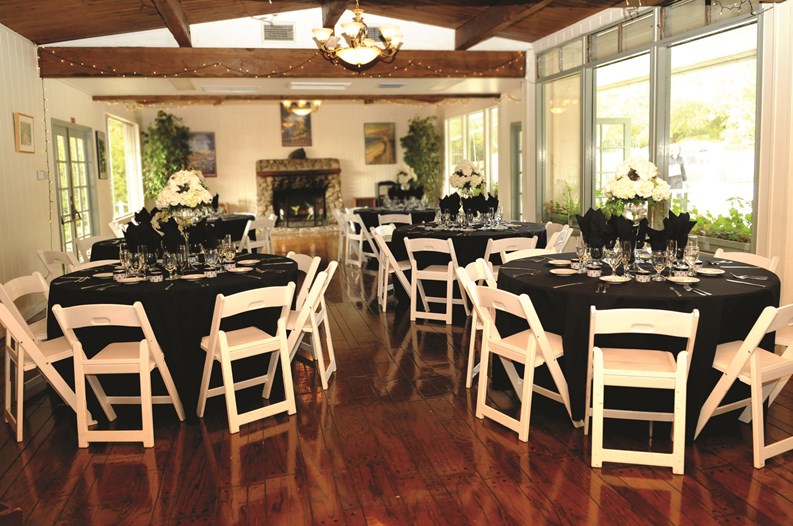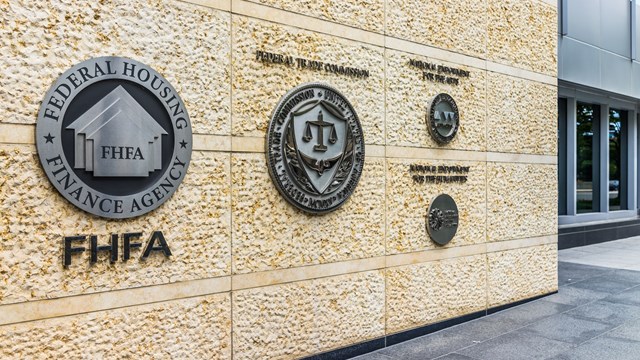Amenities can be a major selling point for any co-op or condo. You don't have to be Jillian Michaels these days to have a spa or full gym at home. Naturally, they add to the property value of the building as a whole, as well as to the individual units. Some buildings or condo associations are lucky enough to have a library, a residents-only lounge, a rooftop deck, a screening room, an infinity pool, a community rock garden or various other amenity spaces. They can even be a potential source of income for the association community.
Party for Hire
It stands to reason that, by renting out a common area to a trusted individual or group in need, an association could stand to pocket a little additional revenue for its coffers. However, in Chicago, the majority of shared space usage stems from those within the communities in question.
"Typically, an association only allows an owner to rent out the association's common spaces, although the owner may be hosting an event which includes non-owners," explains Benjamin Rooney, an associate attorney with the law firm of Keay & Costello, P.C. in Wheaton. "That said, and especially wherein larger associations are concerned, there are certainly instances in which the common area is rented to non-owner groups in order to generate some income to offset members' common expenses. But before doing this, a board should speak with its accountant to insure that any income thereby derived is treated in the most tax-friendly manner."
One simple reason why Chicago condo communities tend to relegate common area usage to their own is that, should they open their facilities to a broader swath of the public, they're also opening themselves to a higher degree of both liability and responsibility.
"The leasing of common facilities to non-residents does occur at some properties, but doing so creates more complicated legal and practical issues," says Scott Rosenlund, a shareholder attorney with the law firm of Fullett Rosenlund Anderson PC in Chicago and Lake Zurich. "For example, enforcement of association rules regulating the use of common areas is significantly less complex when the user is a resident or a guest thereof, as opposed to a member of the general public."
Another factor that affects Chicago proper, and less so the suburbs, is simple spatial concerns. "Most of the associations that I represent are in the city, and, as a result, virtually none of them have a clubhouse or any significant recreational facility," notes Mark Rosenbaum, a principal attorney with the law firm of Fischel & Kahn, Ltd. in Chicago. "Some may have a hospitality room which they use for events, but even those tend to be pretty small; they may fit 30 or 40 people, but they won't fit 200."
There are also insurance concerns at play when allowing outsiders into an association's grounds. Any type of inciting incident can pose potential financial risk for boards or owners. As Christopher Berg, CMCA, AMS, PCAM, the president of Independent Association Managers, Inc. in Naperville points out, the cash raked in by an association that rents out a facility must be significant in order to offset any potential penalties should something go awry.
You Know the Rules
Clearly, there is a level of timidity at play among associations when granting permission to utilize common areas, as well as a great deal of responsibility when doing so, even to trusted parties. It would seem that there would be some ironclad rules in place that address exactly how a board or owner can reserve a space, what can and cannot be done therein, and how any compensation should come into play. And there are.
"Unless a facility is designated as commercial space, a board often simply adopts rules to govern the use of said facility," says Berg. "When an owner allows a friend to use a facility, the owner remains responsible for any damages. Compensation for non-resident use would have to be detailed in a lease agreement, and responsibility for damages beyond a customary deposit would have to be sought via enforcement of the terms of the agreement—potentially through legal action."
The tenets of the association/owner relationship are laid out in that association's governing documents. According to Rooney, this means that the documents are only binding for the association's members, and, more likely than not, a member's guests. When one damages a common area, the cost can usually be charged back to the owner responsible. However, if a non-member rents the space and incurs damage, then the remedy will be entirely dependent on whatever agreement had been established between the association and non-owner in question.
"This distinction may persuade an association to require a non-member to rent space under different terms than would be allowed a member," Rooney explains. "These differences may include a larger deposit for a non-member, restriction on the types of events a non-member may host, or a limited number of guests which a non-member may have."
Rosenbaum notes that, while some Chicagoland high-rises have rooftop decks with awe-inspiring views, those come with their own particular risks. "Many decks are actually limited common elements of one particular unit, so the specific owner tends to be, quite reasonably, careful with what goes on out there. If a rooftop is more accessible, boards are still pretty hesitant to do anything excessive—and this probably goes without saying—but nobody wants to have someone fall off a roof."
He also points out that, to the certain disappointment of some, the option to have alcohol isn't a guarantee at these condo soirees, due to Chicago's requirement that anyone engaging in the sale thereof possess a liquor license. "You can have a caterer come in, and as long as you're not selling the liquor, you're probably okay," he says.
Put it in Writing
Given the necessity to defer responsibility from an association to whatever party is utilizing a common area at any given time, be they owner or outside visitor, it is good sense to have some sort of written agreement in play, such that a facility user clearly understands and acknowledges the burden which they've undertaken by commandeering a space. What said agreement entails is up to the discretion of an association and its advisers, but one rarely looks the fool for being overly thorough.
"Associations should consider utilizing a detailed rental agreement," says Rosenlund. "It can address various legal and operational issues, including rental fee, damage deposit, rental dates and hours, the proper conduct of guests, permitted areas of access, cleanup requirements, insurance requirements, a waiver of liability and indemnification requirements. A proper rental agreement is essential when a user is a member of the general public."
Oftentimes, consternation over outsiders using a common facility is minimal simply because the clubhouse facility or common room is frequently in high demand among owners. "Members of an association are frequently given priority over non-members, and entire days can be blocked off in which non-members are not allowed to rent a space," explains Rooney. "Many of the rules that apply to either members or non-members will be quite similar," he adds. "An easy way to address this is to simply incorporate the association's rules and regulations into a contract for non-members, alleviating the need for duplicate sets of rules."
Berg observes that leases and liability waivers are the most common legal documents involved in the outsourcing of common facilities. "Some management software packages include functionality to manage facility reservations, but online services can provide access to a simple, shared calendar for smaller-scale or self-managed operations," he says. "Deposits are common, and credit checks are sometimes required for non-resident leasing, but major damages are still likely to end up in front of a judge."
Watch Out Now
There are many things that can go wrong when anyone, whether it's a member or not, uses a common area. It’s impossible to prepare for every scenario but there are some things an association should take into consideration from the get-go in order to safeguard themselves and their members from any surprises down the line.
"All associations should carry workers compensation coverage, even if they don't have employees," says Berg. "This protects against inside and third-party injuries, as an injured person could be anyone from an under-insured contractor to a committee or board member working on-site on behalf of the association."
And Rooney advises to hold a renter's feet to the fire, no matter how familiar that person is to an owner or a group of members. "Always require the renter to provide proof that all adequate insurance, permits and licenses have been obtained prior to allowing them access." Taking someone at his or her word may well result in calamity, he says.
While it's natural to be proud of one's communal amenities, it's important to remember that precautions exist for the protection of the association and its membership, and not to make things difficult for outsiders who want to share in the joys of communal living. When in doubt, a board can always consult its attorney, insurance agent, or property manager for advice on how to best lock down a protocol for sharing its space.
Michael Odenthal is a staff writer for The Chicagoland Cooperator.







Leave a Comment